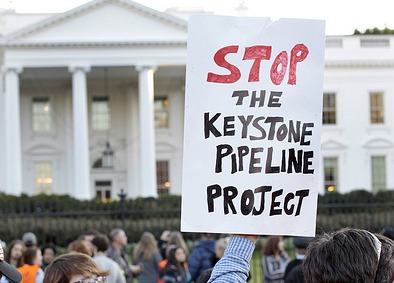
ShutterstockFact: All pencils in Canada look like this.
Dear America,
How are you? We are fine. It’s been a bit warmer than usual up our way. But not too bad, considering.
I wanted to check in with you about the Keystone XL pipeline proposal that many of you seem to be rather upset about, and actually ping you for a bit of neighborly advice. While some of us on this side of the border really want Secretary Kerry to give Keystone the thumbs-up, many of us are pretty cool on the idea.
The truth is, just beneath our mild-mannered veneer, we Canadians are a tormented people. Here’s why.
Unlike you — with your Netflix, and Apple, and Facebook, and Boeing, and General Electric and so on — we have a resource economy. Since our early days as the global leader in the beaver-pelt industry, we’ve cut down trees, and dug up rocks, and pumped stuff out of the ground, and sold it to you — and others — so you could turn it into more useful things like furniture, appliances, houses, suburbia, and so on.
Today, thanks to our oil sands, our fossil fuel sector is going gangbusters. In 2010, energy accounted for 6.8 percent of Canada’s GDP, with oil and gas contributing roughly half of that amount. This is in large part thanks to you. Even without Keystone XL, we are already your No. 1 supplier of imported petroleum — we more than double Saudi Arabia’s contribution.
Fossil fuels literally keep the lights on in these parts, put bread on the table for hundreds of thousands of us, and provide critical government revenue that we have come to depend on for hospitals, schools, and other social services. But we’re just starting to realize the growing risk and uncertainty associated with this economic model.
Which is why we’re so … conflicted.
After all, we are a civilized and caring people, who want to do the right thing. We legislated marriage equity, pioneered universal health care, invented Greenpeace, and hosted the Montreal Protocol conference that led to the eventual banning of CFCs and other ozone-depleting chemicals.
More recently, Canadians introduced North America’s first economy-wide carbon tax in British Columbia (The Economist called it “a winner”), and the continent’s first true feed-in-tariff program, in Ontario. As a result of the latter policy, by the end of this year Ontario will unplug from coal power forever. We also have cleantech sectors that have spurred cool innovations, like CO2-sequestering concrete.
It’s getting tougher for many of us to square these accomplishments, and our national character, with the vision of those who insist, in this age of accelerating climate change, that it is our destiny to become the world’s gas pump — with Keystone XL serving as one of the hoses.
Deep down, many of us would secretly like our country to become a truly 21st century clean energy economy. We want to grow up to become a clean energy economy leader. A country where our prime minister actually speaks frankly about the imperative to urgently address climate change, as your president does. One where our leaders in business and government talk up the trillion-dollar clean energy opportunity, as many of yours do.
You know from the Detroit experience how tough it is to reinvent an economy. We know we need to change; polling suggests our hearts are certainly there, and that Canadians are keen to move to a clean-energy future. But while we have made a good start in some respects, we don’t yet have a plan in place to move forward.
We know we aren’t going to transform our economy overnight, but there is strong public support to take the wealth being generated by our fossil fuel resources and use it to accelerate our transition to a better, more sustainable economy, one where Canadians both sell and consume clean-energy technologies and services. A transition that would serve both of our countries and build on our existing energy relationship.
What’s the way out? The truth is, Canada needs to have a bigger conversation. How do we transition our economy to get off the resource-economy roller-coaster, reduce our fossil fuel dependence, and lead in the global low-carbon economy? How can we help create a broad movement around solutions and economic transformation — one that our government can’t ignore?
So what could you do to help us tackle these questions? It seems that we need some kind of slap in the face or wake-up call that clearly signals the perils of our fixation on pumping out more and more fossil fuels. Something to incentivize Canada to sit down and put our heads together with yours to come up with a shared plan to ramp up cleantech, renewable energy, and other innovations that will power the low-carbon transition.
After all, we have way more renewable energy potential than we can use, and you have a whole bunch of coal-fired power you need to replace.
We’d like to help bring the right people together, and muster the resources to help make it happen. You have your big gnarly challenges. This is ours. But we’d like to think that there are winning solutions for us both. Whaddya say?
Your friend,
Canada
—–
CORRECTION: This post originally stated that Canada was the No. 2 supplier of imported petroleum to the U.S. In fact, Canada is the No. 1 supplier. We’ve corrected the text to reflect this fact.



